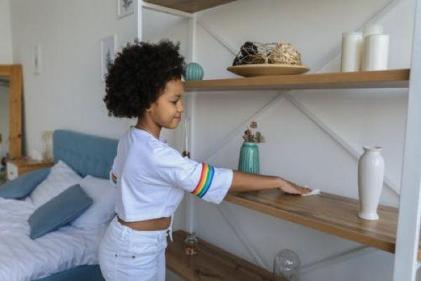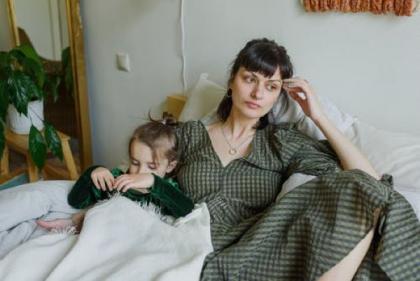At preschool age, most children won’t notice disabilities at all. That is, unless it’s something that’s instantly apparent, like a missing limb or a wheelchair, or unless someone has actually pointed it out to them. Two and three year olds might point or stare, while a four year old will probably have questions. While your child’s blurted questions at this age are nothing more than curiosity, how you respond will have a profound impact on how your child treats disabled people later in life.
When your child does remark on a disability, or ask a question, use it as an opportunity to explain that people are different in more ways than how they look or what colour they are. Explain, for instance, that if someone is using a white cane to walk, that they are blind, and cannot see like you and your child can. If you see someone using sign language, and your child asks about it, explain that they cannot hear like you can. Be sure to make your child understand that even though these people are different, they are still people, just like you and he or she is. This way, you can begin to set a lifelong tone of acceptance and inclusion.
When your child asks questions, try to be as direct and simple as possible. Don’t go into long explanations. If your child asks about someone who is missing a limb, and in a wheel chair, for instance, simply say that it’s because that person can’t walk, and leave it at that.
Another important thing to remember is to use respectful terminology to describe disabled people. Don’t use terms like retarded or crippled. Also make a point of not referring to non disabled people and children as ‘normal’ as this may make your child feel that all other people are abnormal.
When it comes to staring, you may be tempted to tell your child not to. Don’t. This kind of avoidance is often harder for disabled people than children who stare, or even those who ask questions.
Rather than focusing on the differences between disabled people and your child, focus on what’s the same. Perhaps they live in the same area, or have the same hair or eye colour. Maybe they like the same toys as your child (in the case of a disabled playmate.)
One of the biggest hurdles for children when it comes to disability is fear. Your child may worry that disabilities are contagious, and that he or she could catch it. Explain that in most cases, disabilities are something that people are born with, and that your child cannot get it from playing with or being around disabled people.
Lastly, ensure that your child understands that people with disabilities are people just like you and your child, and your partner and everyone else. Ensure that your child understands that he or she needs to treat them with the same level of respect as they would anyone else.
When your child does remark on a disability, or ask a question, use it as an opportunity to explain that people are different in more ways than how they look or what colour they are. Explain, for instance, that if someone is using a white cane to walk, that they are blind, and cannot see like you and your child can. If you see someone using sign language, and your child asks about it, explain that they cannot hear like you can. Be sure to make your child understand that even though these people are different, they are still people, just like you and he or she is. This way, you can begin to set a lifelong tone of acceptance and inclusion.
When your child asks questions, try to be as direct and simple as possible. Don’t go into long explanations. If your child asks about someone who is missing a limb, and in a wheel chair, for instance, simply say that it’s because that person can’t walk, and leave it at that.
Another important thing to remember is to use respectful terminology to describe disabled people. Don’t use terms like retarded or crippled. Also make a point of not referring to non disabled people and children as ‘normal’ as this may make your child feel that all other people are abnormal.
When it comes to staring, you may be tempted to tell your child not to. Don’t. This kind of avoidance is often harder for disabled people than children who stare, or even those who ask questions.
Rather than focusing on the differences between disabled people and your child, focus on what’s the same. Perhaps they live in the same area, or have the same hair or eye colour. Maybe they like the same toys as your child (in the case of a disabled playmate.)
One of the biggest hurdles for children when it comes to disability is fear. Your child may worry that disabilities are contagious, and that he or she could catch it. Explain that in most cases, disabilities are something that people are born with, and that your child cannot get it from playing with or being around disabled people.
Lastly, ensure that your child understands that people with disabilities are people just like you and your child, and your partner and everyone else. Ensure that your child understands that he or she needs to treat them with the same level of respect as they would anyone else.






